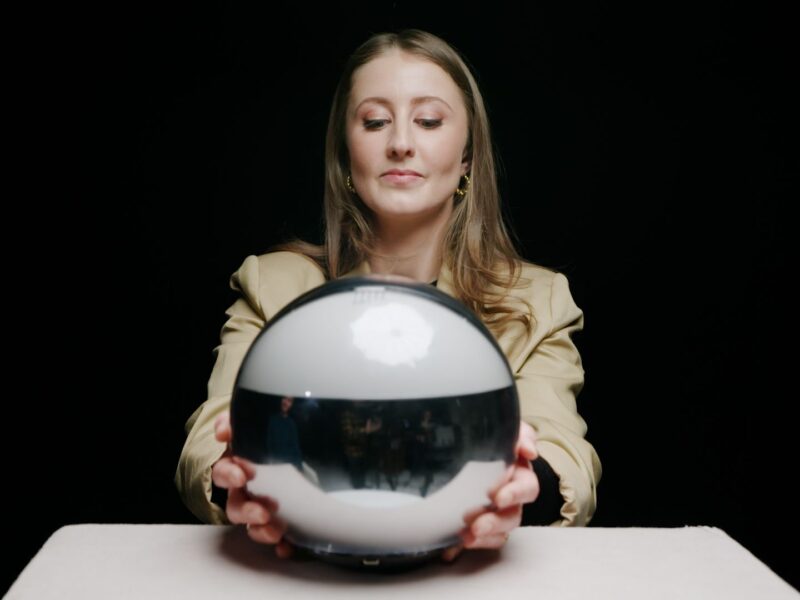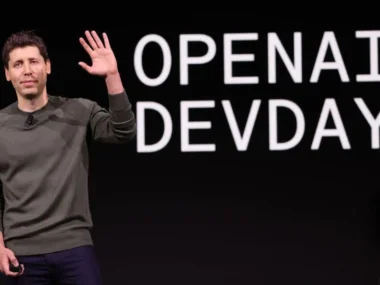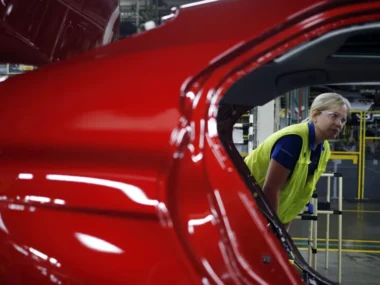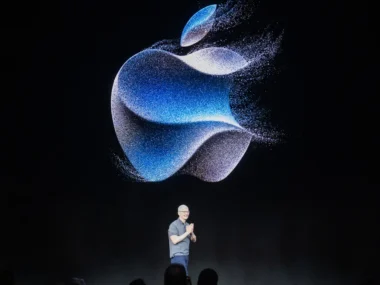A company backed by Sam Altman is aiming to tackle one of the internet’s biggest challenges: telling humans apart from AI bots.
Their solution? A device called the Orb.
When I tried the Orb, it couldn’t confirm I was a “unique human” — though that’s partly intentional. I wear blue-light filtering contacts with a yellow tint, which the Orb interpreted as an attempt to hide my identity.
“That’s unfortunate, but I’m actually glad it denied you,” said Tiago Sada, chief product officer at the Orb’s developer, Tools for Humanity, after the scanner displayed a message saying my face was blocked.
Tools for Humanity — co-founded by Altman — built the Orb to offer what it claims is a better way to verify identity in the AI era. Since AI can now analyze images, traditional CAPTCHA systems are less effective at spotting bots. Verifying real users is becoming more important, especially as fake accounts flood ticketing platforms, dating sites, and social media — sometimes fueling scams or spreading misinformation.
“Every time tickets go on sale, bots scoop them up and raise the prices,” said Sada. “On dating apps, I constantly run into profiles that seem fake — like someone with six fingers. That’s AI.”
Still, persuading people to trust a futuristic-looking Orb with their facial data won’t be easy.
Authorities in Hong Kong have already banned the project due to privacy issues. Inquiries are also underway in places like the UK, where the Orb isn’t currently offered. Critics argue the Orb reflects a broader AI vision promoted by Altman that many aren’t comfortable with.
Even so, Sada insists the need is real. “On every kind of site — finance, shopping, social media — verifying humanity is incredibly important,” he said.
How the Orb works
According to Tiago Sada, when someone scans their face with the Orb, it captures detailed images of their eyes and face, analyzing features like structure and how their skin reacts to light.
Once a user’s “humanness” is confirmed, the system issues a unique “WorldID” to their phone via an app. This WorldID acts like a digital passport, helping verify a user’s identity across various online platforms. It’s similar to Face ID, but doesn’t require an iPhone and is designed to work with more services.
Sada explained that, for example, a bank could use WorldID instead of traditional security questions to confirm someone’s identity — a safer option, since personal questions can often be guessed by scammers. While current uses are limited, WorldID already works with select platforms like Reddit and Shopify, giving verified users access to human-only subreddits or exclusive retail offers.
Over 12 million people have completed Orb verification so far. The devices are free to use and located in public spots like malls across more than 20 countries, as well as at Tools for Humanity events. Later this year, the company plans to start offering Orb delivery to homes — beginning in Latin America — to make access even easier.
Although the Orb is temporarily offline in the U.S. while undergoing updates, the World App remains active and available.
Safety questions
Tools for Humanity developed the Orb for “World,” an open-source platform designed to act as a digital space for verified human users.
In some countries, World users can trade a cryptocurrency called “Worldcoin,” which is only accessible to verified individuals on the network. Some Orb users have received small amounts of Worldcoin in exchange for scanning their faces, although CNN did not receive any during testing. (Worldcoin isn’t currently available in the U.S.)
Originally launched in 2023 as “Worldcoin,” the project rebranded to simply “World” the following year, while keeping the token’s name the same. Project leaders say it could help address the economic challenges brought on by AI — such as distributing universal basic income, a concept Sam Altman supports.
Right now, Tools for Humanity generates most of its revenue by selling or leasing Orbs to “community operators” in the World network. These operators receive additional Worldcoin for onboarding new users. The company noted it’s also exploring other ways to generate income.
As with many crypto initiatives, World has faced increased scrutiny. Critics worry that offering users crypto might make them ignore privacy concerns, while others fear the project could give too much control to Altman, a central figure in the AI movement.
The rebrand was widely seen as an attempt to reposition the platform as more than just a cryptocurrency venture.
Sada emphasized that Worldcoin gives users a stake in the network. However, Tools for Humanity did not comment on Altman’s role.
The Orb’s use of biometric data continues to attract attention from regulators in Europe and elsewhere. To address privacy concerns, Tools for Humanity says the photos taken during scans are sent to users’ phones along with their WorldID, then automatically erased from the Orb. The data is encrypted during transfer, and users can secure access to their app with authentication. Much of the Orb’s technology has been open-sourced to allow independent verification of its safety.
“It may not seem obvious that this kind of system can be private,” Sada said. “But we believe privacy is freedom — and World’s mission is to protect that freedom.”











